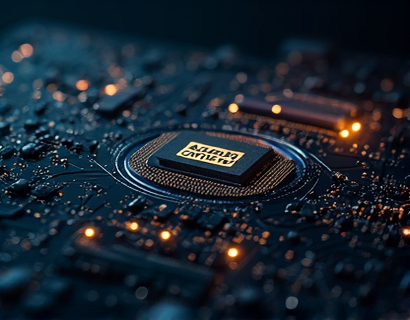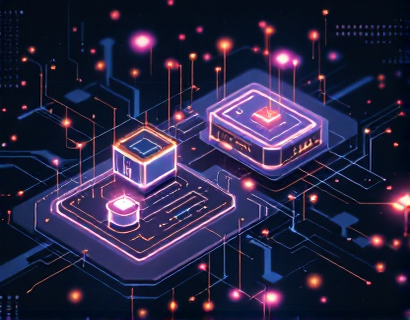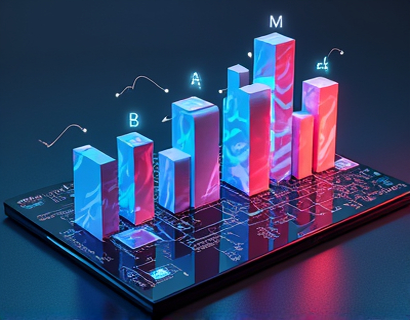Blockchain Oracle Management: Streamlining Data Integration and Smart Contract Execution for Decentralized Applications
In the rapidly evolving landscape of blockchain technology, the role of oracles emerges as a critical component for connecting decentralized applications (DApps) with external data sources. Oracles serve as bridges, providing real-time data and enabling smart contracts to interact with the off-chain world. However, managing these oracles efficiently remains a challenge for developers and businesses aiming to harness the full potential of blockchain. This article delves into transformative software solutions that revolutionize oracle management, focusing on streamlining data integration and enhancing smart contract execution. By optimizing these processes, the platform ensures secure and reliable interactions within DApps, unlocking the full potential of blockchain technology through advanced management and seamless service access.
Understanding Oracle Management in Blockchain
Oracle management in blockchain involves the process of integrating external data into smart contracts. These external data sources can include APIs, databases, IoT devices, and more. The primary function of an oracle is to fetch data from these sources and relay it back to the blockchain, allowing smart contracts to make informed decisions based on real-world conditions. However, this process is fraught with challenges such as data latency, security risks, and the need for high availability. Effective oracle management addresses these issues by providing robust mechanisms for data validation, secure communication, and efficient data handling.
Challenges in Traditional Oracle Management
Traditional oracle solutions often suffer from several limitations. Data latency is a significant issue, as delays in fetching and verifying data can lead to outdated information being used by smart contracts. This can result in incorrect executions and undermine the trust in the DApp. Security is another critical concern, as oracles act as single points of failure. If compromised, they can introduce vulnerabilities that adversaries can exploit to manipulate smart contract behavior. Additionally, the lack of standardization in oracle protocols leads to fragmented ecosystems, making it difficult for developers to integrate multiple data sources seamlessly.
Transformative Software Solutions for Oracle Management
To address these challenges, innovative software solutions have emerged, designed to streamline oracle management and enhance the overall blockchain service access. These solutions focus on three key areas: data integration, smart contract execution, and security. By optimizing these areas, the platform provides a comprehensive framework for developers and businesses to build reliable and efficient DApps.
Streamlining Data Integration
One of the primary benefits of advanced oracle management software is the streamlined data integration process. These platforms offer unified data sources, allowing developers to connect to multiple external APIs and databases through a single interface. This reduces the complexity of managing multiple oracles and ensures consistent data retrieval. The software includes features such as real-time data fetching, caching mechanisms, and data validation protocols to minimize latency and ensure data accuracy. By integrating data from diverse sources, developers can create more sophisticated and responsive DApps.
For instance, the platform supports Web3 APIs, RESTful services, and IoT data streams, providing a versatile ecosystem for data integration. Developers can easily configure data sources, set up polling intervals, and define data transformation rules to fit the specific requirements of their smart contracts. This flexibility enables the creation of DApps that can adapt to changing external conditions and provide users with up-to-date information.
Enhancing Smart Contract Execution
Efficient smart contract execution is another critical aspect of oracle management. Advanced software solutions ensure that smart contracts can reliably interact with external data without compromising on security or performance. One key feature is the implementation of trustless data verification, where multiple oracles can provide the same data point, and the system aggregates and validates the inputs to prevent manipulation. This consensus mechanism enhances the reliability of the data fed into smart contracts, reducing the risk of errors and fraud.
Furthermore, these platforms support complex smart contract logic, enabling the execution of conditional statements and loops based on real-time data. For example, a smart contract can be designed to trigger a transaction only when certain environmental conditions, such as temperature or humidity, meet predefined thresholds. The software ensures that these conditions are accurately fetched and verified before the contract executes, thereby maintaining the integrity of the DApp.
Ensuring Security and Reliability
Security is paramount in oracle management, and advanced solutions incorporate multiple layers of protection to safeguard against potential threats. One such feature is the use of cryptographic techniques to secure data transmission between oracles and the blockchain. This ensures that data is tamper-proof and that only authenticated data is used by smart contracts. Additionally, the platform implements rate limiting and IP whitelisting to prevent abuse and denial-of-service attacks.
To further enhance security, the software includes built-in monitoring and alerting systems. These systems continuously monitor the health and performance of connected oracles, detecting anomalies and potential security breaches in real-time. Developers can receive immediate notifications in case of any issues, allowing for prompt action to mitigate risks. This proactive approach to security helps build trust in the DApp ecosystem and ensures that users can rely on the data and functionalities provided by smart contracts.
Benefits of Advanced Oracle Management
The implementation of advanced oracle management solutions brings numerous benefits to developers and businesses. By streamlining data integration and enhancing smart contract execution, these platforms enable the creation of more robust and user-friendly DApps. Some of the key advantages include:
- Improved Data Accuracy: Real-time data fetching and validation ensure that smart contracts have access to the most current and accurate information.
- Enhanced Security:
- Increased Reliability:
- Simplified Development:
- Cost Efficiency:
Multiple layers of security, including cryptographic techniques and real-time monitoring, protect against data manipulation and attacks.Consensus mechanisms and redundant data sources reduce the risk of single points of failure and ensure consistent performance.Unified interfaces and pre-built integrations reduce the complexity of connecting to various data sources, allowing developers to focus on core functionalities.By optimizing data retrieval and reducing latency, businesses can lower operational costs associated with maintaining multiple oracles.Case Studies and Real-World Applications
To illustrate the practical applications and benefits of advanced oracle management, consider a few real-world scenarios. In the finance sector, a decentralized lending platform can leverage real-time market data to adjust interest rates dynamically. By using a reliable oracle service, the platform ensures that loan terms are always based on the latest market conditions, providing both lenders and borrowers with fair and transparent terms.
In the supply chain management domain, a DApp can track the movement of goods in real-time by integrating data from IoT sensors and logistics APIs. The oracle service fetches and validates this data, allowing smart contracts to automate processes such as inventory management and payment settlements. This not only increases efficiency but also reduces the risk of fraud and errors.
Another example is in the realm of decentralized gaming, where player achievements and in-game assets can be tied to real-world events or external data sources. An oracle service can fetch data from sports APIs to determine bonus rewards for players based on game outcomes, enhancing the gaming experience and fostering a more engaged community.
Future Trends in Oracle Management
As blockchain technology continues to mature, the demand for sophisticated oracle management solutions is expected to grow. Future trends in this space include:
- Interoperability: Development of cross-chain oracles that can seamlessly integrate data across different blockchain networks, enabling more interconnected DApps.
- AI and Machine Learning: Integration of AI algorithms to predict data trends and optimize data retrieval processes, further enhancing the efficiency of smart contracts.
- Standardization: Efforts to establish industry standards for oracle protocols, promoting compatibility and reducing fragmentation in the ecosystem.
- Decentralized Oracles: Creation of decentralized oracle networks where multiple independent oracles contribute to data validation, increasing resilience and trust.
These advancements will continue to push the boundaries of what is possible with blockchain technology, making DApps more powerful, secure, and user-friendly.
Conclusion
In conclusion, advanced oracle management solutions play a vital role in the development and success of decentralized applications. By addressing the challenges of data integration, smart contract execution, and security, these platforms empower developers and businesses to build more reliable and efficient DApps. As the blockchain ecosystem evolves, the importance of robust oracle management will only grow, driving innovation and expanding the potential of decentralized technologies. Embracing these solutions is essential for anyone looking to harness the full power of blockchain and create impactful decentralized solutions.










































